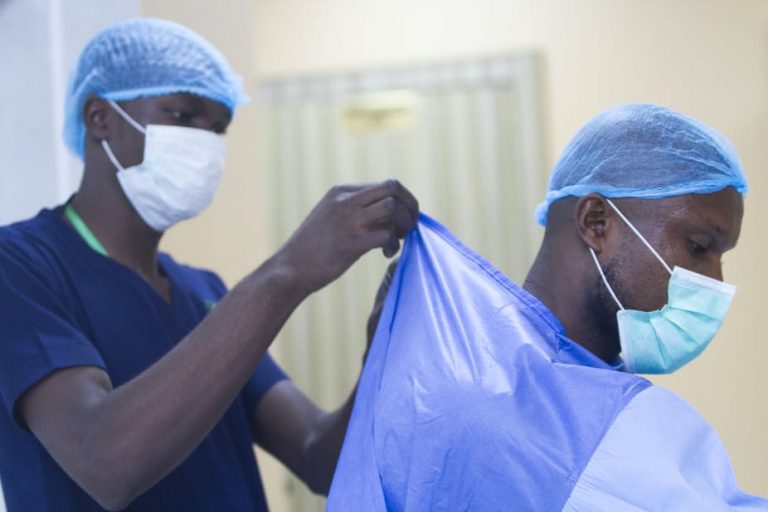The Nigerian Medical Association has stated that the doctor-patient ratio in the country is deteriorating.
Bala Audu, President of the NMA, stated this at an interactive session with the media in Abuja on Wednesday, noting that the doctor-patient ratio is almost 1,000 percent lower than the World Health Organisation standard.
“The doctor-patient ratio is around 1,000 percent lower than what the World Health Organisation recommends. Recently, a medical school graduated its medical students, and I believe they conducted a survey asking the new graduates whether they wanted to stay or depart. Your guess is as valid as mine. It is a problem that is worsening, but it is one that we can address.
“And I think that is the essence of such interactive forums, not to keep crying about our problems, but to profile solutions to these problems,” Audu told me.
Many Nigerian healthcare workers have left the country in search of greener pastures, and experts have expressed concern about the rising emigration rate. According to them, the main factors are inadequate equipment, increased insecurity, bad working conditions, and a low salary structure.
The Medical and Dental Consultants Association of Nigeria reported that between 2019 and 2023, around 1,056 consultants left the country in search of greener pastures.
The Nigerian Association of Resident Doctors also disclosed that over 900 of its members fled for Europe between January and September 2023.
Meanwhile, Audu emphasised the importance of boosting health workers’ well-being, creating a better working environment, and providing housing for doctors.
“Improving the well-being of doctors and nurses is one of the concerns that will keep them in this country. It is more than simply their take-home package; they also require health care, education for their children, and other necessities. If another person offers a better opportunity, they are more likely to accept it.
Additionally, we need to enhance the friendliness of the workplace environment. There have been instances of attacks on healthcare providers, especially by those transporting patients to hospitals. This is likely due to the unavailability of certain resources, causing heightened emotions and leading to attacks. Therefore, it’s crucial to improve our facilities.
Housing is also a significant requirement, particularly for internship training. Regulations stipulate that quality training for house officers necessitates their residence within the hospital, ensuring their constant availability. This is a common point raised by the Nigerian Association of Resident Doctors. The residency training mandates that they live within the hospital, which requires adequate accommodation provisions.
The country invests substantially in training doctors, nurses, dentists, and other healthcare providers. However, despite the pressing demand for healthcare professionals, many graduates are not promptly employed. If we delay, other countries will recruit them, resulting in a loss of our trained personnel.
In May, the Coordinating Minister of Health and Social Welfare, Muhammad Pate, announced an increase in the enrollment quota for medical, nursing, and other health professional schools from 28,000 to 64,000 annually. This measure aims to address the Japa syndrome in the health sector.
The NMA President emphasized the need to improve training facilities. “If you previously admitted 200 medical students each year and now plan to admit 400, you must double the accommodation and training facilities to maintain the quality of their education. These are the areas we are discussing with the government to ensure improvements, enabling us to continue producing high-quality health professionals for Nigeria and the world,” he added.



